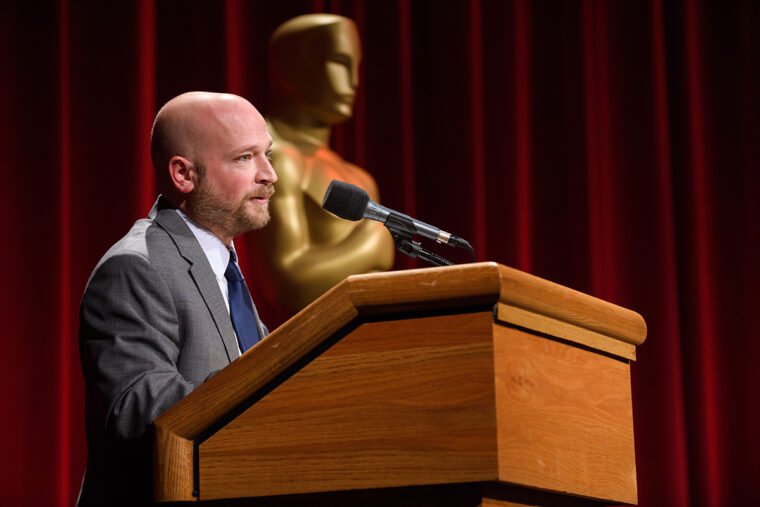Joey Clarke, AB ’07, moved to Los Angeles after graduation in hopes of making it as a film writer. He worked a variety of low-level jobs but admits he didn’t put the effort he needed into writing. A relationship and a change of scenery helped kick-start his film writing career, and in 2018 he won the Academy Awards’ Nicholl Fellowship in Screenwriting for his script Miles. Here, he shares some tips about what has worked for him and how writing for film is — and isn’t — the same as other types of writing.
Write every day. Right now, I write at the end of the day. I still have a day job and a 2-year old son, August. Time is limited, so I have to stay disciplined. And you have to be honest with yourself early on; if a scene or an idea isn’t working, fix it before you let other people read it. Be OK with not being great every single time you sit down to write. It’s OK as long as you’re making progress and moving forward.
Do your research. After moving away from LA, I decided the best way to break in was to win a Nicholl award. That’s one of the only screenwriting competitions that can help launch a career. So I started studying what kinds of scripts win. Winning stories are usually heartfelt, are character-driven and often relate to a current issue. (In Miles, the plot revolves around two kids dealing with the effects of their parents’ opioid addictions.) It still takes luck and getting the right readers along the way.
Take writing classes (screen and fiction), and draw from your own experiences. Find beauty in small things. If you’re coming from a place of emotional truth, stuff you can relate to, you can transfer that into any type of story. I could write about outer space if I can find an emotional arc. And even with scripts, you need to set the scene, and the words on the page matter. People review 100 scripts a week. Yours has to be an entertaining read first and foremost before it becomes a movie.
See a lot of movies. See old movies and figure out what they’re saying, the symbolism. It’s helpful when talking to people in Hollywood to show that you know the history. See current movies. Knowing what’s going on is important when you talk to producers. Know what ideas are working these days. Seeing great movies is also a good reminder of why you’re trying to do this in the first place.
Listen to, read and follow people who are successful at what you want to do. Be as educated as possible. Read scripts, read interviews with successful screenwriters. Listening to successful people is what works for me. People I pay attention to include John August, Michael Arndt and Scott Myers.
What’s Next? I’ve rewritten Miles five or six times. It’s still in development, but it’s coming along. Thanks to the Nicholl, I signed with a manager and found producers interested in making the film. I have meetings with potential financiers and directors.
If you get into this work with the goal simply to make money, you’re in the wrong business. The goal is to sit in a theater one day and watch something I’ve written. There are a lot easier ways to make money.
Watch as Blair Underwood, Ken Jeong, Lily Collins and other actors perform a scene from Clarke’s Miles.



